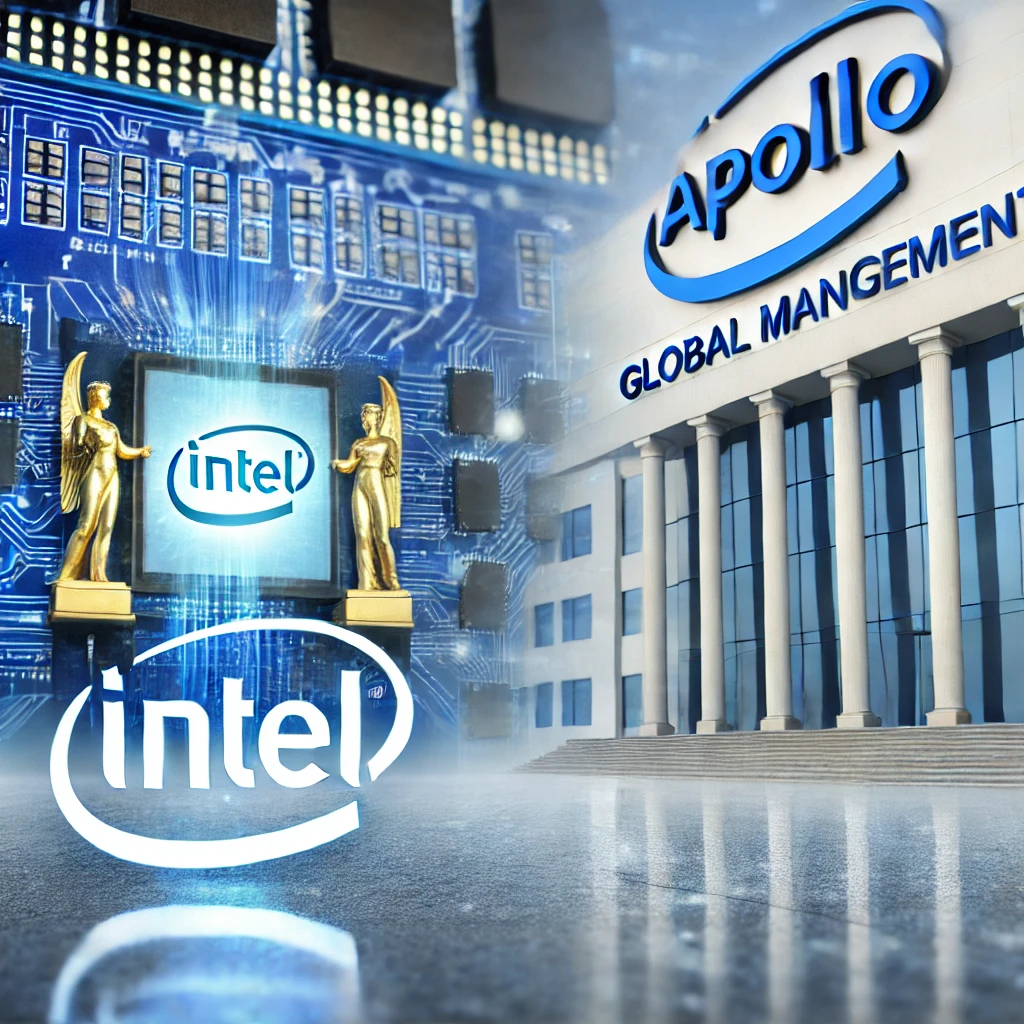Apollo Global Management, a prominent U.S.-based asset management firm, has reportedly expressed interest in making a substantial investment in semiconductor giant Intel Corporation. According to a recent Bloomberg report, Apollo is proposing an equity-like investment of up to $5 billion in Intel. This potential move comes at a critical time for Intel, which has faced significant challenges in the competitive chipmaking industry.
The report, citing an unnamed source familiar with the matter, suggests that Apollo’s proposal is still in its early stages. Intel executives are said to be considering the offer, but no formal agreements have been reached as of yet. If the investment materializes, it could mark a pivotal moment for both companies as they navigate a rapidly evolving technological landscape.
A Strategic Investment Amid Declining Valuations
Intel, once the world’s most valuable chipmaker, has seen a dramatic decline in its stock price over the past year. Since the start of the year, the company’s shares have plummeted by nearly 60%, reflecting ongoing struggles to keep pace with competitors like AMD, Nvidia, and a growing number of firms in the global semiconductor market.
The semiconductor industry, which is crucial for everything from smartphones to cloud computing, has been experiencing rapid growth in demand, but Intel has struggled to maintain its market dominance. The company has faced delays in its product roadmap, intense competition in advanced chip technologies, and supply chain disruptions exacerbated by the global pandemic. These factors have contributed to its weakening financial position and stock market performance.
Apollo’s proposed investment may offer Intel much-needed financial support to weather these challenges. As an asset management firm with a broad portfolio of investments, Apollo’s involvement could bring not only capital but also strategic insights that could help Intel regain its footing in the market.
What Does an “Equity-Like” Investment Mean?
While details of the offer remain scarce, the report suggests Apollo’s investment would be “equity-like.” This implies that the deal would not necessarily involve the purchase of common stock but rather a form of capital injection that mimics the characteristics of equity. Such an investment could take the form of convertible bonds, preferred shares, or other financial instruments that give Apollo significant influence over Intel’s future direction while providing Intel with immediate capital.
This kind of investment could be an attractive option for Intel. Rather than taking on additional debt, which could increase the company’s liabilities, an equity-like investment could offer the company more flexibility in how it uses the funds. Additionally, this type of arrangement might appeal to Intel’s management if they are wary of ceding too much control over the company’s operations.
Why Apollo Is Interested
Apollo Global Management, which manages hundreds of billions of dollars in assets, has a history of pursuing high-profile investments in a range of sectors, including technology, healthcare, and energy. The firm’s interest in Intel likely stems from a belief that the chipmaker is currently undervalued and that there is significant potential for growth as the semiconductor industry expands.
Intel, despite its current struggles, remains a critical player in the global chip market. It has the infrastructure, intellectual property, and customer base to recover from its current downturn. With the right financial backing and strategic shifts, Intel could regain its competitive edge in a market that is only expected to grow as demand for semiconductors increases in areas like artificial intelligence, cloud computing, and 5G technology.
For Apollo, this investment could present a unique opportunity to acquire a stake in a company with long-term growth potential at a time when its stock is significantly depressed. If Intel can reverse its fortunes, Apollo could see substantial returns on its investment.
Challenges Facing Intel
While Apollo’s interest may provide some optimism for Intel, the company still faces a series of hurdles. Competitors like AMD and Nvidia have been gaining ground, especially in the market for advanced processors used in data centers and high-performance computing. Moreover, Intel has faced setbacks in rolling out its next-generation chip technologies, allowing its rivals to seize a larger share of the market.
Intel has also been grappling with supply chain issues that have affected its ability to meet the increasing demand for semiconductors. The global chip shortage, exacerbated by the COVID-19 pandemic, has further complicated the company’s efforts to bounce back.
To counter these challenges, Intel has been investing heavily in expanding its manufacturing capabilities, including plans to build new semiconductor fabrication plants (fabs) in the United States and Europe. The company is also working to accelerate the development of its next-generation chip designs in an effort to close the technological gap with its competitors.
The Path Forward
As talks between Intel and Apollo continue, industry observers are keeping a close eye on whether this potential investment could signal a turning point for Intel. If the deal goes through, it could provide the company with the financial resources it needs to execute its long-term strategy and regain its leadership position in the semiconductor market.
However, with negotiations still in the preliminary stages, there is no guarantee that an agreement will be reached. Intel may choose to explore other options, and Apollo could face competition from other investors seeking to capitalize on Intel’s weakened stock price.
For now, both companies remain tight-lipped about the specifics of the proposal. But as Intel continues to navigate its way through a challenging period, an infusion of capital from a major player like Apollo could be exactly what the company needs to revitalize its business and chart a path to future success.
As the semiconductor industry continues to evolve, Intel’s ability to adapt and innovate will be crucial. Apollo’s interest may be a sign that, despite its recent troubles, Intel still has the potential to be a dominant force in the tech world.



